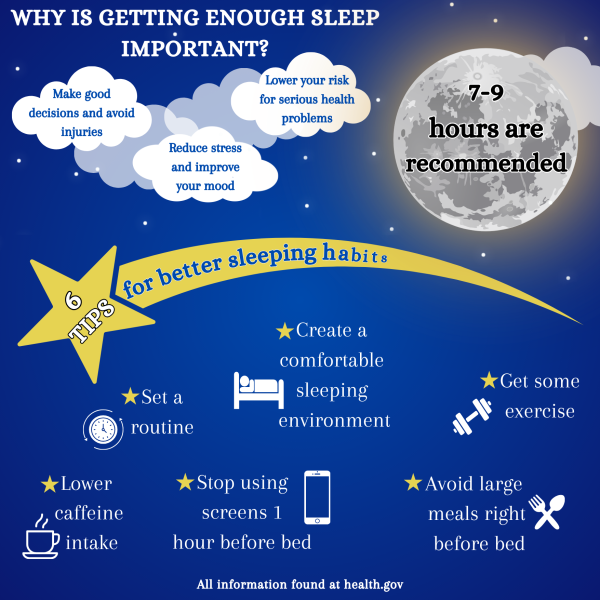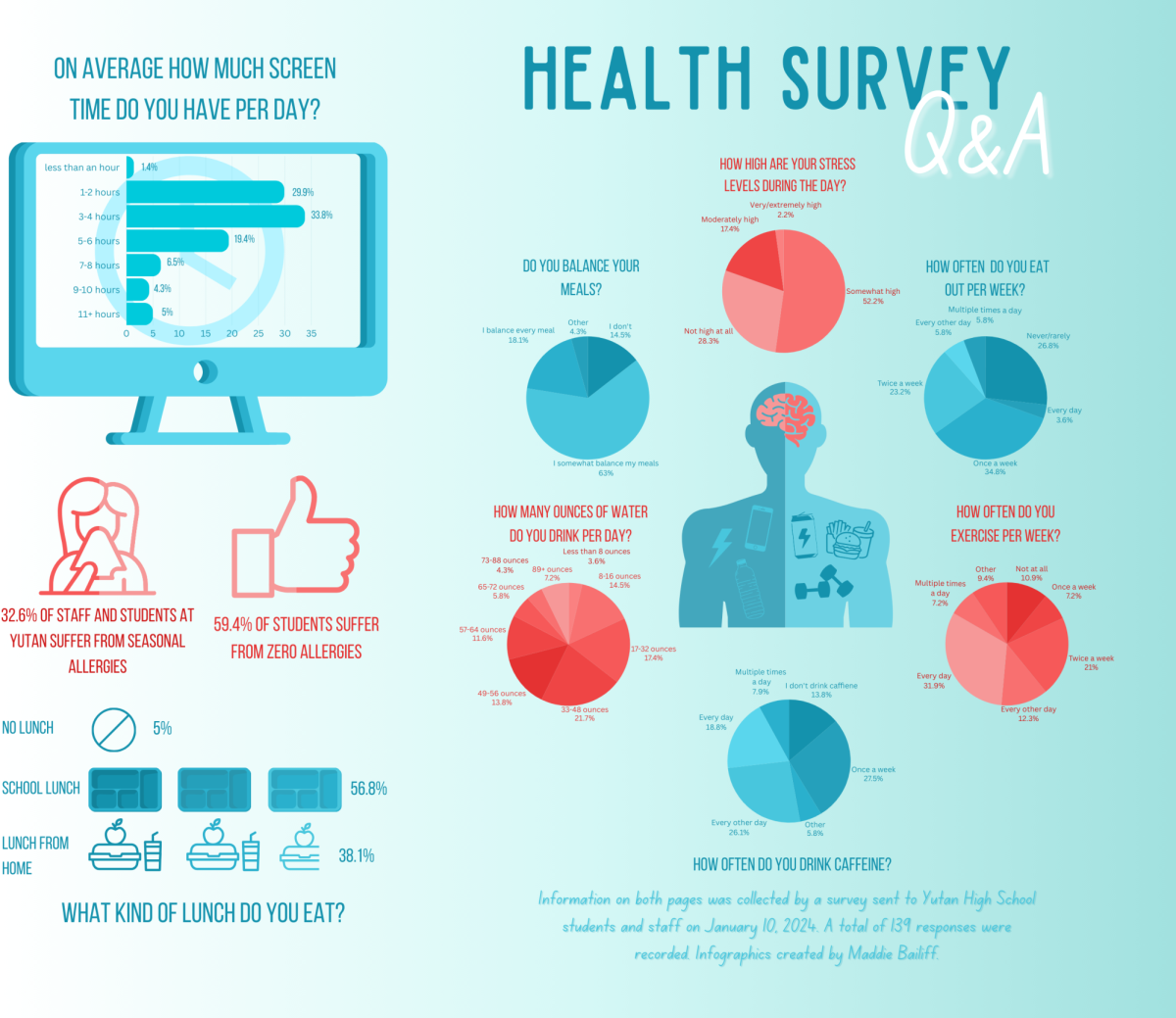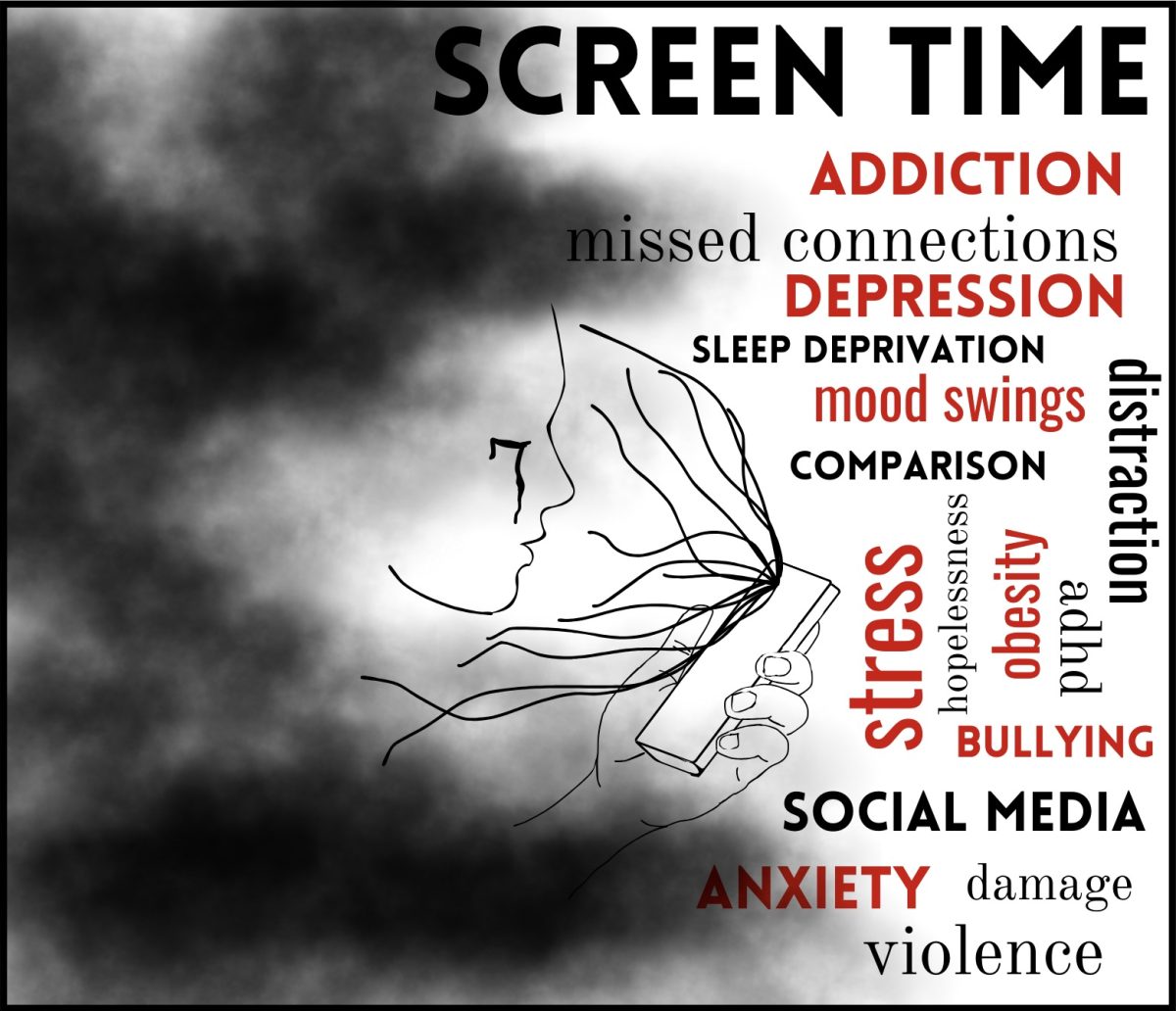Ever since I was a kid, I can remember being told at every single doctor’s appointment to get the recommended hours of sleep each night. Try as I might, I have rarely seemed to be able to wake up in the morning knowing that I had fulfilled my doctor’s recommendation. I’m not the only one who struggles with getting a good night’s sleep either. Millions of people across the globe have issues with sleep, and I believe we as a society need to do a better job of prioritizing the importance of sleep before it’s too late.
Just like breathing, eating and drinking, sleeping is one of the most important basic human needs. Getting enough sleep each night not only affects how we feel the next morning, but it can impact our overall health for the rest of our lives. Lack of sleep can be linked to several potentially life-threatening conditions, such as type two diabetes, heart disease, obesity and depression. According to the Centers for Disease Control and Prevention, a third of adults living in the United States reported that they do not get enough sleep on a regular basis. Very similarly, a study conducted by the Nationwide Children’s Hospital reported that on average teenagers got only about seven hours of sleep when they should be getting nine. Even in Yutan, less than 45 percent of teenagers get as much sleep as they should. This is a serious problem that our country needs to address with urgency because of the health risks it bears on our population. Over the past couple of years, the number of individuals with mental health issues has increased dramatically, and according to the Sleep Foundation, there is a direct correlation between lack of sleep and mental health issues. If we can ensure everyone is getting the amount of sleep that they need, conditions like depression could see a decrease. Even if the change isn’t dramatic, it’s a step in the right direction.
Another way that lack of sleep impacts health is physical problems. According to the National Institutes of Health, some of these problems are instantaneous, such as getting in a car crash or having a migraine. Many lack-of-sleep-related problems are more long-lasting, however. These can include, but aren’t limited to, stunted growth and development in children and teenagers and underdevelopment of cognitive abilities, such as thinking, reacting, working, learning and getting along with others. I myself have experienced excruciating migraines after not getting enough sleep, and it’s something that can seriously affect my day-to-day life. For me, being a student who is also involved in multiple extracurricular activities at a time, being able to stay alert and active is imperative. If I don’t get enough sleep and wake up with a migraine the next morning, I see a detrimental decrease in my performance in school, sports and other activities. Not only does this affect my abilities in everyday life, it affects those around me as well. For example, if I have a migraine due to lack of sleep and I go to basketball practice, I get so focused on the pain that is pounding inside my head that it prevents me from giving 100 percent, which affects my teammates as well. So in order to make sure that I don’t let myself or my teammates down in anything that I do, I do my best to get enough sleep the night before.
While a lot of mental and physical problems could be relieved by getting enough sleep, there are many different factors that play into how much sleep we get. Depending on what time a person gets up in the morning and when he or she goes to bed at night, the amount of sleep each individual gets can vary. As a high school student, I have to get up around 6:30 every morning. To account for this, I need to make sure I go to bed at a reasonable time—usually about 9:30—to ensure I get enough sleep. However, sometimes I get extremely busy after school and don’t get home until around 10 o’clock at night. While some people may view this as an issue, I have developed a simple plan to help make sure I wake up as refreshed as possible the next morning. First, I always make sure to do any homework as soon as I get home so I don’t have to stay up too late. Second, I make myself comfortable so it’s easier for my body to relax. Finally, I make sure to limit my screen time so I don’t stay up all night scrolling on my phone. As long as I do those three things, I can wake up feeling refreshed and ready to take on the day.
While I have managed to get enough sleep by following these steps, my solution might not be reasonable for other people’s schedules. However, there are many other solutions that I’m sure would be able to help people get enough sleep. According to Johns Hopkins Medicine, there are five very simple methods to improving a person’s sleep: drinking warm milk, chamomile tea or tart cherry juice; exercising; using melatonin supplements; keeping the bed cool; and keeping the lights off at all times during the night, even while using the bathroom. There are many other methods that people can use, and what works for someone may not work for others. But it’s important to figure out what works best for you because getting enough sleep is one of the most important human body requirements.
In conclusion, sleep is a necessity for everyone, no matter their age. Lack of sleep can result in all sorts of negative health problems, but catching enough Z’s is a great way to keep them at bay. As a society, we need to make sleep a priority instead of putting it after all the other commitments we may have. As long as we work together, we can ensure that everyone gets enough sleep each night so they not only are ready to take on the day but are set up to live a long and healthy life, full of sweet dreams.










